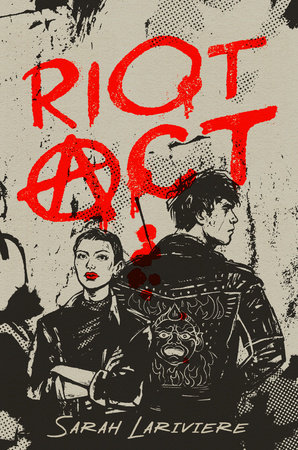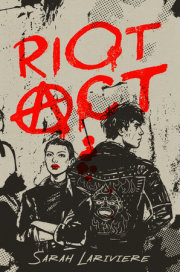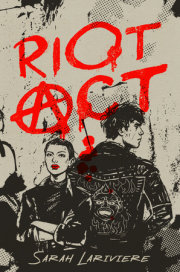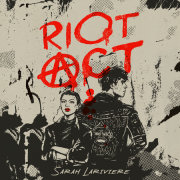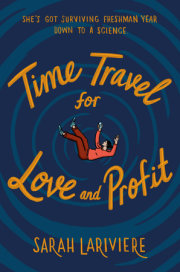1.
Hung be the heavens with black
Champaign, Illinois, 1991
Summer’s over and I’m still fucking dead. They buried me in the cemetery south of town where everybody goes to have sex. Nobody in my family is buried out here. Nobody knows anybody who’s buried out here. For miles around in every direction it’s just a wasteland of shredded cornfields. If anybody had ever really known me, they would’ve cremated me and tossed my ashes in the dumpster behind Ye Olde Donut Shoppe. Instead I’ve spent my summer vacation buried under a gnarled apple tree that’s just aching to crap wormy fruit all over me. A full moon shines on my stone:
MAXIMUS BOWL, 1972–1991
Born.
Dead.
No nickname.
No memorable quote.
Tonight, Giselle and Axl drove out to the boondocks to visit me. They’re parked in Gigi’s big brown turd, the 1979 Chevy Malibu Classic she bought for six hundred bucks from her dad’s friend Mosquito.
They’re not having sex. Never having sex, for reasons that have always been unclear to me. I’d kick it with either one of them, no hesitation.
Then again, I died horny.
Gigi is in the driver’s seat, chain chewing Red Vines. Bright red lipstick. Joan of Arc buzz cut. She looks like some corn-fed pixie, the type that’s a magnet for doom.
She’s remembering the day we met.
We were Thespians. High school drama dorks. Actors, lighting geeks, sound nerds, scenery designers, stage managers, and other assorted freaks who rehearsed nights and weekends to stage twice-yearly productions under the guidance of our fearless leader, theater teacher Fiona Lee.
It was fall of ’88, Gigi’s first Saturday-morning set construction. Gigi was the Ghost Girl with the long black hair hiding in the wings of the Champaign High School theater while the Doors (illegally) blasted from the sound booth, and center stage this corpulent beast of a sophomore (me) drilled holes in flats, bellowing with Jim Morrison.
Gigi can hear me now, singing, “This is the end . . . my only friend, the end. . . .”
See me wearing that Little Bo Peep hat with the pink plastic flowers I used to rock to scare the kiddies away.
Ms. Lee was bitching me out about safety goggles.
I got so caught up in bitching back that I dropped my drill.
Ms. Lee kicked me in the butt.
Ghost Girl laughed.
I looked up.
“Giselle!” called Ms. Lee. “Glad you made it. Will you teach this scene-stealer how to use a power tool?”
Tiny Ms. Lee, hands on her hips, straight black hair in a high pony, inexplicable suit jacket, inexplicable sandals, was smiling the smile that Gigi would later learn the teacher reserves for new kids, the smile that’s so defiant it’s almost loud.
Gigi walked downstage, to the edge. She appeared to be walking on water. Looked out, into the house, the sea of empty seats where an audience would be.
Turned to me.
“Can I borrow your hat?”
“Certainly.” I struggled to my feet, tipped my bonnet. With a flick of the wrist, I presented it to her. “Fair warning, freshwoman. This hat renders its wearer preposterous.”
When she put on the bonnet, Gigi shape-shifted.
“Check out me lump of lead. Spittin’ image of the baked bean!”
Translation: In this hat, I resemble the queen.
Her cockney accent was dead-on.
We had an actress on our hands.
“A light hussy, I’d say,” I retorted.
“Up yer arse!”
From that moment, Gigi and I were inseparable.
Axl is sitting shotgun. Paint-spattered pants tucked into black Doc Martens, fists like boulders on his knees. Wild hair. Complexion pulsing with tawny health, like some feral lumberjack. Eyes the color of arctic waters crawling with Vikings. He’s clutching a Zippo.
He flips it open.
Lights a flame.
Flips it shut.
Axl is remembering the night I died.
The first shot was shattered glass skidding across the Ping-Pong table, Axl and me turning our heads, seeing the hole in the wall.
Axl yelling, “Fuck!”
Dropping his soldering iron.
Running for the door.
And me, looking back at the broken window, at my fractured reflection, understanding that it had come to this.
On the armrest between Axl and Gigi, a boom box blasts the Raincoats. “This! Is just! A fairy tale! Happening in the supermarket!”
Thanks to Axl, you can still get outlawed music here in Champaign, Illinois, and all the baby farm towns that surround us. Films, too. In fact, Axl can get you pretty much any that your Midwestern heart desires.
Short on cash?
Still worth asking. He might hook you up on principle.
The Fischer brothers have an ethic about these things.
When the Raincoats song ends, the cassette keeps spinning. America’s Favorite Dictator is in the middle of a sentence.
“. . . the Market respects those who respect the Market. The SYXTEM respects the Market. Join the millions who have already discovered the SYXTEM’s trademarked techniques to increase your personal value—”
But the party sales pitch is cut off by the xylophone stylings of the Violent Femmes.
“Why can’t I get / Just one screw?”
Gigi tosses her Red Vines into the back seat. “I can’t do senior year.”
Axl drops the lighter into the chest pocket of his flannel. “Okay.”
“Fuck it,” she says. “I’ll drop out.”
“And hide where?” asks Axl. “Rolling Acres?”
Rolling Acres: a cluster of ranch houses, a half mile by a quarter mile, plopped smack in the middle of the cornfields south of Champaign.
Rolling Acres, the neighborhood where Gigi and Axl grew up.
Rolling Acres, the place where I died.
Gigi shrugs. “Maybe.”
“I’m off at eight tomorrow,” says Axl. “Come to my theater after. We’ll find somewhere better to stash you than that.”
Gigi clenches the steering wheel like she’s revving up. “I mean—I’ll be at school on Monday. Of course. Just saying. Anyway, can’t tomorrow. Dinner shift.”
“So, after work.”
“After, I’m going to Orin’s.”
Axl smirks. Takes his ciggies out of his chest pocket, looks at them like he’s going to shove his tongue down their throat.
Gigi eyes him.
Axl hasn’t lit a butt since I died.
While we fled Rolling Acres, dodging bullets (mostly dodging), trying not to trip over the pack of poodles and pugs gone feral who had joined us, slipping in their ubiquitous shit, the way Axl was hacking, I thought his lungs were trying to escape his body. Like if we didn’t get away, the lungs still might.
Axl opens the glove compartment. Six unopened packs are stuffed in there with a pair of rainbow-striped gloves, because Gigi and I once decided that something called a glove compartment should contain them.
He crams in the fresh pack, smacks the liquid-poop-colored plastic door shut. Bangs his skull against the headrest to help the craving pass.
Quitting smoking is by far the easiest thing on Axl’s to-do list.
Still hard.
“Orin Ellis,” he says. “Did that pretentious cyberfuck not graduate?”
“He lends me books to read,” says Gigi. “For the Defiance.”
Axl’s dimple appears out of nowhere like he wants to laugh, but his eyes say he doesn’t have the juice for it. “Orin has nothing to do with the Defiance. He just needs people to believe he does.”
Gigi shrugs. “Guess he’s trying to impress me.”
“Probably,” says Axl. “Because you’re playing so hard to get.”
Gigi punches Axl in the arm.
“You know Orin disdains human flesh,” Axl goes on; he can’t help it. “He thinks it would be better if we became cyborgs with electric jacks and plugged ourselves into each other to bone. Do not let that guy put his tongue in your mouth.”
“Stop.”
Axl presses eject on the boom box, removes the cassette tape labeled SYXTEM: Side 3: Take What You Deserve. He flips the tape, cranks the volume.
It’s Prince, “Let’s Go Crazy.”
My song.
Gigi hits the fog lights. They roll down the squeaky windows of the Malibu, push open its heavy doors, jump out. Their boots sink into the soil I’ll call home until my body disintegrates completely, fat cell by fat cell, and I become it. Gigi is wearing a bright green Irish whiskey T-shirt belted like a dress, her father’s old Navy jacket with DURANT stenciled on the pocket, ankle boots the color of dried blood. Axl is a giant in his ripped Hüsker Dü T-shirt and beat-up leather jacket. They meet in the muddy gravel in front of the car.
“Oh no let’s go! Go! Go crazy. . . .”
Axl throws his massive arms over his head and thrashes like he’s in his own private mosh pit. Gigi dances in a carefree, aerobic way, like the high school heroine of one of the ’80s movies she loves way more than it makes sense to, given how little they have to do with her life. Gigi’s America looks nothing like the America in those films, but she refuses to let the fantasy go. Why shouldn’t her problems be limited to living on the wrong side of the tracks, resolvable by a cool vintage prom dress? She clings to the wish like a life preserver as she and Axl dance on their best friend’s grave in the headlights, kicking up mud to Prince and the chirping of the field crickets.
The living Max would’ve appreciated this twisted memorial.
As for the dead one?
I’d like to tell these kids to be more careful.
The party is watching.
Possession of Anti-American Thought can get you a one-way ticket to a reeducation camp in North Carolina.
Gigi and Axl shouldn’t need me to remind them about the New American Way, but here they are, blasting their soundtrack, tempting fate.
Alas, I can’t berate them. The only place I exist anymore is inside a living person’s thoughts. It’s the sole dead-guy revelation I’ve had, and I’ve got no idea what it means, so I’ll repeat it.
The dead live in your thoughts.
We feel your feelings.
The dead are in you, and we have much to say.
Copyright © 2024 by Sarah Lariviere. All rights reserved. No part of this excerpt may be reproduced or reprinted without permission in writing from the publisher.

